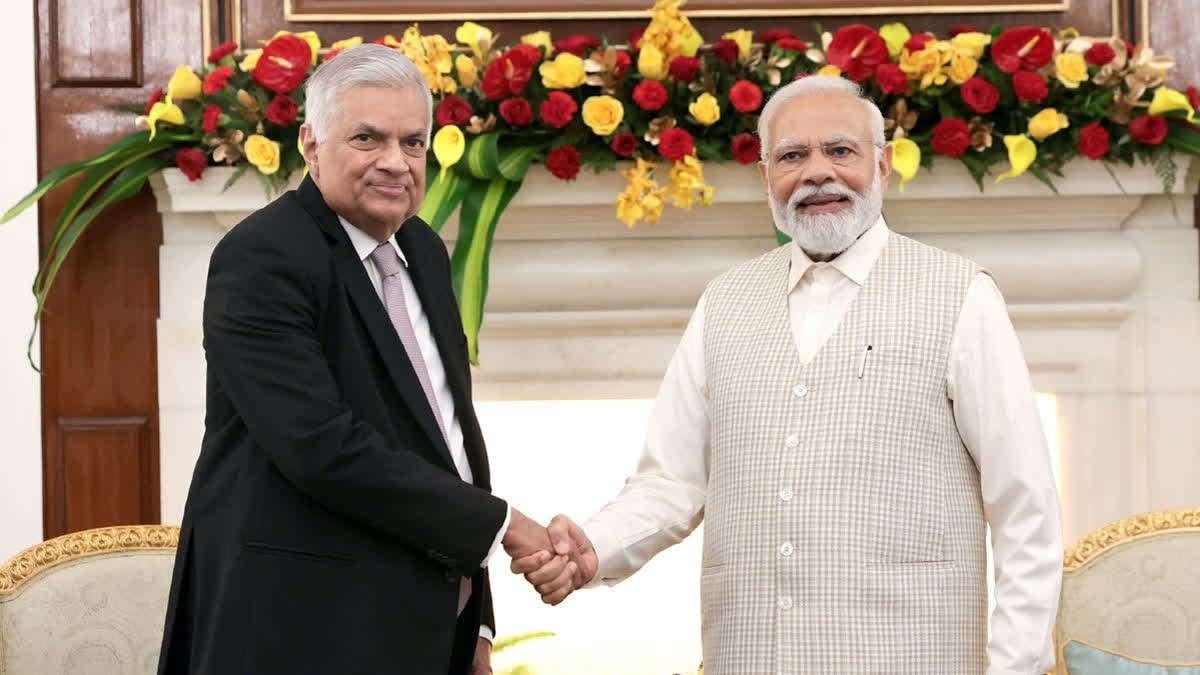New Delhi: Among the agreements that were signed during Sri Lankan President Ranil Wickremesinghe’s visit to India on Friday was the network to network agreement between the NPCI International Payments Limited (NIPL) and Lanka Pay for United Payments Interface (UPI) application acceptance in the Indian Ocean island nation.
So far, France, UAE, and Singapore had partnered with India on emerging fintech and payment solutions. According to a joint statement titled “Promoting Connectivity, Catalysing Prosperity: India-Sri Lanka Economic Partnership Vision”, the two countries agreed to “operationalise UPI-based digital payments for further enhancing trade and transactions between businesses and common people”.
Sri Lanka has now become the latest country which will accept the Indian rupee in terms of international transactions instead of the traditional US dollar. In July 2021, Bhutan became the first country, in India’s immediate neighbourhood, to use the BHIM app for mobile-based payments and to adopt UPI standards for its QR deployment. Earlier this month, during Prime Minister Narendra Modi’s visit to the United Arab Emirates, India and the Gulf nation signed a memorandum of understanding (MoU) for the acceptance of UPI payments.
In February this year, India’s UPI and Singapore’s PayNow collaborated to enable fast and affordable remittances between the two countries. In October 2022, Oman too joined hands with NPCI (National Payments Corporation of India) to link UPI with its payments system. On July 13, during Modi’s visit to Paris, India and France also signed an agreement that allows Indian tourists to use UPI for transactions in rupees. The Maldives is another country in India’s neighbourhood that accepts UPI payments.
“This agreement will reduce the pressure on Sri Lanka of depending on the US dollar for international transactions," N. Sathiya Moorthy, a Chennai-based policy analyst and commentator, told ETV Bharat. “Sri Lankan people and traders can now pay in Indian rupees.”
Friday’s agreement comes after the Reserve Bank of India (RBI) signed a currency swap agreement in 2020 for extending up to $400 million to Sri Lanka. Central banks and governments engage in currency swaps with foreign counterparts to meet short-term foreign exchange liquidity requirements or to ensure adequate foreign currency to avoid balance of ayments (BOP) crisis till longer arrangements can be made. These swap operations carry no exchange rate or other market risks as transaction terms are set in advance.
“Tourism is a mainstay of the Sri Lankan economy,” Moorthy said. “Sri Lanka is heavily dependent on Indian tourists. The agreement on UPI transactions will help Indian tourists to make payments in their own currency.” India’s rapid digitalisation is an important force-multiplier for ongoing transformational changes in India, both in economic development and governance, according to the Vision statement. The two sides also “agreed to leverage India’s digital public infrastructure in accordance with Sri Lanka’s requirements and priorities towards effective and efficient delivery of citizen-centric services to the people of Sri Lanka”.
Following Friday’s bilateral meeting between Modi and Wickremesinghe, the two sides also agreed to facilitate investments from India in the divestment of Sri Lankan state-owned enterprises and in manufacturing and economic zones in various sectors in that country. Though Wickremesinghe had visited India several times earlier, this was his first visit as President of Sri Lanka. He had taken over as President in July last year after the island nation was faced with an economic crisis. New Delhi had played a significant role in helping Colombo to deal with the crisis.



